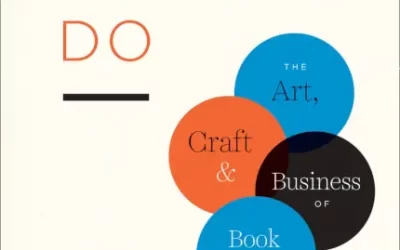There is a recent adage going around among authors that one bad review can hurt more than five excellent ones. But why is this the case, and how can authors turn this into an advantage?
Perceived Quality Damage
One way that bad reviews can hurt is the perceived quality damage to a book. Upon reading a book, customers are much more likely to leave a bad review after a negative experience than a complimentary review after a positive experience. This is because bad experiences can impact them more strongly than can positive experiences. They can linger for longer in customers’ minds, and thus the customers can feel more inclined to write a review about the book that provoked these dramatic negative feelings.
Unfortunately, this is disadvantageous for authors. Because product ratings (usually out of five stars) display the cumulative average of good and bad reviews, an author needs at least four five-star reviews to counteract each one-star review. Some experts suggest needing as high as ten to twelve complimentary reviews to counteract every bad one.
Consequently, authors should try to solve this problem by producing a high-quality book. If that fails, they can try to game the system by soliciting their books to readers who are more likely to write a positive review. However, they would be better served by reading the bad reviews, learning where they need to improve, and strengthening those weak aspects to their writing (whether it be characterization, dialogue, exposition, or on the publishing side, book formatting or plot summaries). Critical reviewers can even become valuable beta readers, if authors learn to appreciate reviewers’ criticism as constructive and wish to ask them for feedback on future novels.
Negative reviews are also inherently valuable because they legitimize a book. Readers might become suspicious of a book that lacks negative reviews, because they might believe that the author removed the negative reviews, bribed friends to write positive reviews, or created fake positive reviews. Bad reviews can also prepare authors for future criticism, toughening their skin and making them less sensitive to harsh critique. Ultimately, even bad reviews mean that people are reading a book, which is a good problem to have.

Emotional Damage
Another way that bad reviews can hurt is the emotional damage they may cause. When reading a bad review, if authors feel hurt by it, that is their brains telling them it’s a threat to their literary survival. Because the brain is hardwired to recognize threats (back from when prehistoric humans were more vulnerable to attacks from predatory animals and even other humans), even emotional threats impact us more greatly than do positive inputs. Negative criticism could realistically lead to fewer sales, (and thus less income), lost networking opportunities, and possible lost contracts with major publishers down the road.
How can authors combat the emotional damage of negative reviews? First, they should recognize that it is okay to feel hurt by a negative review, becauseour brains are primed to warn us about social rejection. Authors should reassure themselves that one bad review is not the end of the world because they are still blessed with food, friends, family, and a home (even if it’s just a temporary one, in the worst-case scenario). Authors should spend time with good friends and colleagues who support them, rather than dwell on reviews from strangers. And finally, as much as authors want to view writing as a profession that determines their livelihoods, they should remember that it should also be fun!
Happy writing!
By: Matthew Wade
Matt is an Editorial Assistant at Technica Editorial




